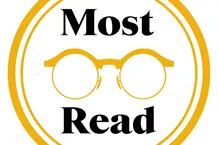Eleven days after the legal arguments of the case were heard, Judge William Fahey issued a single-line statement on November 29 saying that he did not agree that the law (Assembly Bill 96 was passed in 2015) is unconstitutional.
No other details were given although the Findings of Fact and Conclusions of Law on the case are expected before December 23.
The Ivory Education Institute (IEI), formed in 2014 to advance the interests of collectors of objects made from ivory, said environmental group The Natural Resources Defense Council had “jumped the gun in trumpeting the judge’s initial findings as a definitive defeat”.
Possible Appeal
Godfrey Harris, director of the IEI, told supporters: “Because we feel our arguments are strong and because the judge failed to elaborate on any of our points, we have tentatively decided to appeal the matter.
“We will decide if and how to proceed once we see the findings. Then the 60-day clock for launching an appeal starts.”
Dealers and collectors in the US have deemed the case a test on the veracity of tough state laws on ivory.
Lawyers for the IEI said any attempt to regulate the trade in ivory at state level is unconstitutional because it amounts to “an assault on the primacy of the Federal government in areas of international relations”.
It also says the CITES treaty expressly forbids subdivisions of member states from taking any action different from a signatory.





